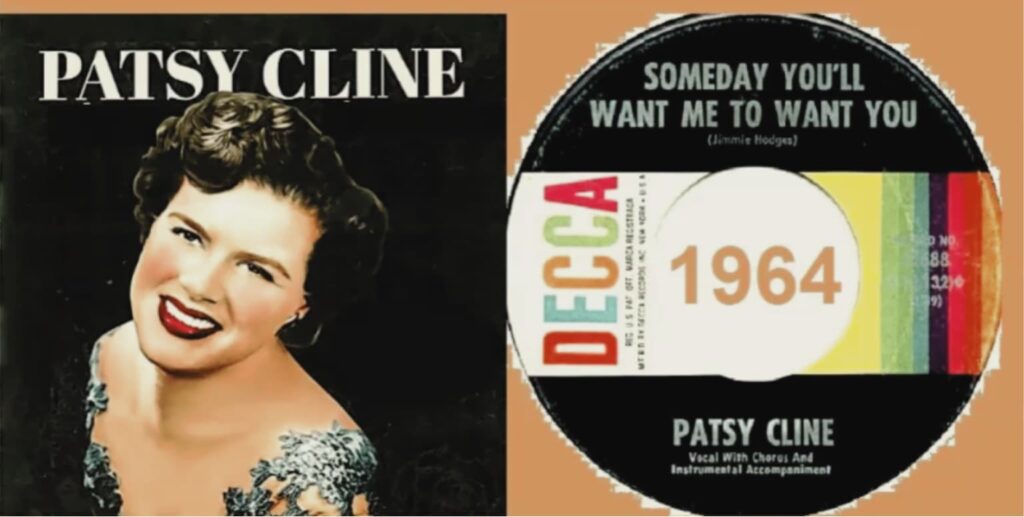
A Timeless Anthem of Unrequited Love and Haunting Regret
There are some songs that, no matter how many times you hear them, still carry the weight of a first listen. They conjure a specific time, a feeling, and a place in your memory. For many, that song is Patsy Cline‘s rendition of “Someday You’ll Want Me to Want You.” It’s a track that stands as a testament to the enduring power of a single voice and a deeply felt, universal emotion: the poignant ache of unrequited love and the cold comfort of knowing that someday, the tables will turn.
Released in 1964 as a single on the Decca Records label, “Someday You’ll Want Me to Want You” found its way into the hearts of listeners and, perhaps more surprisingly, onto the charts. While it wasn’t a crossover pop smash, the song achieved a respectable position on the Billboard Hot Country Singles chart, peaking at number 17. This chart success, however, tells only a fraction of the story. Its true legacy lies not in its peak position, but in its persistent presence on jukeboxes, radio airwaves, and in the collective consciousness of a generation.
The story behind this particular recording is tinged with a deep and somber irony. Patsy Cline‘s version was recorded in 1962, a mere year before her tragic and untimely death in a plane crash. She had already established herself as a country music icon, a woman whose voice could effortlessly transition from the heartbreaking vulnerability of “I Fall to Pieces” to the defiant strength of “Walkin’ After Midnight.” This particular session, conducted with her longtime producer Owen Bradley, marked a pivotal moment in her career, showcasing a maturity and emotional depth that was unparalleled.
The song itself was not new; it was a country standard, a song with a long and winding history. Originally written by Jimmie Hodges and Paul Carpenter, it had been recorded by numerous artists over the years. But when it reached Patsy Cline, something magical happened. She didn’t just sing the words; she inhabited them. Her voice, a rich, full-bodied instrument with a subtle, sorrowful vibrato, transformed the simple lyrics into a powerful narrative. She took the well-worn tale of a love spurned and made it a deeply personal and almost prophetic lament.
The meaning of the song is a bittersweet cocktail of sadness and vindication. The narrator, after being rejected and cast aside, holds onto the certainty that the one who left will one day return, filled with regret and a desire to rekindle what they once had. It’s a sentiment that resonates with anyone who has ever felt the sting of a broken heart. The lyrics, “Someday you’ll want me to want you / But it’ll be too late,” aren’t just a threat; they are a statement of weary resignation. There’s no anger here, only a quiet, resolute sadness and the knowledge that some mistakes can’t be undone.
For many older listeners, this song is a portal to another time. It might bring back memories of a first dance, a heartbreak suffered in the back of a Chevy, or a late-night radio session with a friend. It’s the sound of a world that felt both simpler and more complex, a world where a four-minute song could contain an entire lifetime of emotion. Patsy Cline‘s voice is the guide, a trusted confidante who understands the quiet dramas and grand tragedies of the heart. Her performance on “Someday You’ll Want Me to Want You” is more than a song; it’s a shared memory, a piece of a story we all know. It is a reminder that even in heartbreak, there is a certain dignity, and in the quiet certainty of knowing your worth, there is a profound and lasting peace.